MONROVIA, Montserrado – At the Micro, Small, and Medium Enterprises Conference held last week; President Ellen Johnson Sirleaf challenged supermarket owners to “give people a choice†by allowing Liberian products to be placed on their shelves.
Her comments suggested that there are tons of Liberian products awaiting the market that cannot find a place on shelves.
If that were the case, the Liberian Marketplace – a government-run store created to sell products made in Liberia – would have a lot of products that were not able to find a place on the shelves of supermarkets.
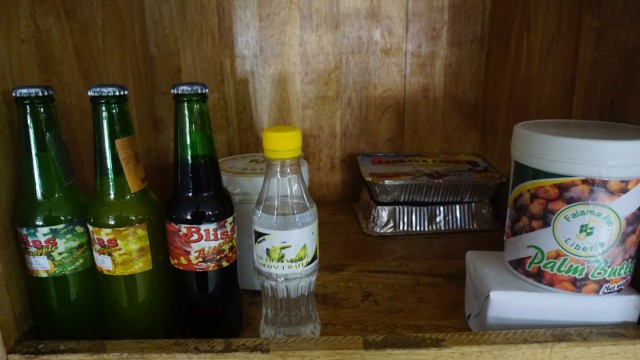
A few of the food items in the Liberian Marketplace, which largely contains artworks and crafts. Photo: Jefferson Krua
However, the store has mostly artworks and crafts in addition to a few food products in substandard packaging. The store, located at 3rd Street and Tubman Boulevard, is run by the Ministry of Commerce.
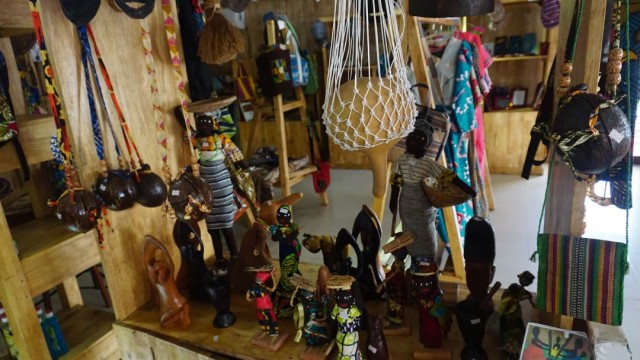
Crafts at the Liberian Marketplace. Photo: Jefferson Krua
Unsurprisingly, a visit to a few supermarkets in the Monrovia area shows that few items sold there are made in Liberia. Roshin Joy, the floor manager at ERA’s 16th street branch, says he thinks about 10-15 percent of their products are made in Liberia, although a cursory glance through the store would suggest a lower percentage.
Joy described the process of getting Liberian items on the market as merely bringing the product to the store once registration and licensing with the appropriate ministries are completed.
His store would then make an assessment about whether to place the product on the shelf, which would be done in a phased process.
He gave the example of Anna’s Bakery bread, made by Elite Foods in Harbel. “She will tell me her price, and then I’ll add a small margin because I want to improve the woman’s business,†Joy said.
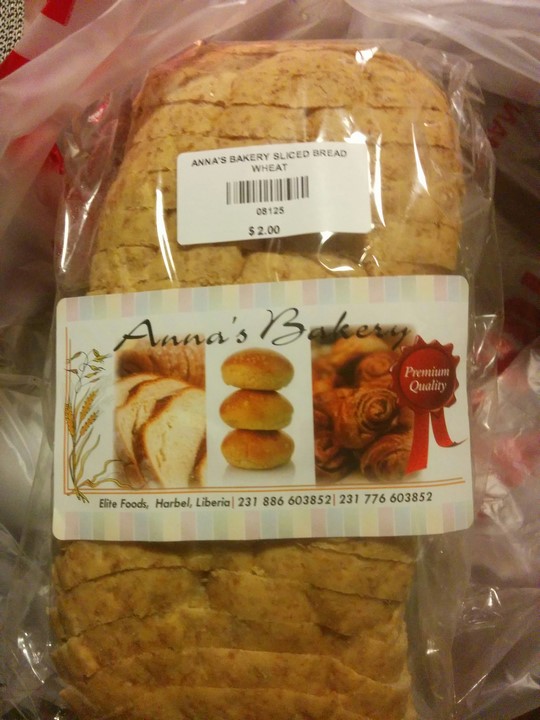
Anna’s Bread, produced by Elite Foods. Photo: Jefferson Krua
The owner first started out with one or two pieces, and when that sold well, he told her to bring 10-15. He monitored how fast the bread was selling to determine whether to allocate more shelf space.
“This bread – Anna’s Bakery bread – and Royal Butter Bread are moving very well. She’ll keep it only one day. The next day, I’ll take it from the shelf because you can’t use it the next day.†Depending on his relationship with manufacturers, Joy said the store would pay up front or after items have sold.
In general, Liberian-made products that sell well generally have a short shelf life, with which imported goods cannot compete as they take time to ship.
Joy said eggs, for example, sell quite well. “Every day I’m taking 10 or 15 cartons of the Liberian eggs – the brown eggs.â€
The eggs sold in his store are brought in from Cape Mount. “The people like only Liberian eggs,†Joy said, as if surprised. “The imported eggs will sometimes take too long to reach you – it will not be too good.â€
Another good seller is the honey made in Liberia. Joy said much of the imported honey have additional ingredients unlike the Liberia Pure Honey, which is without any ingredients. Liberians tend to like theirs. Another advantage to getting the honey locally is because, after a month, it will not be shelf-worthy.
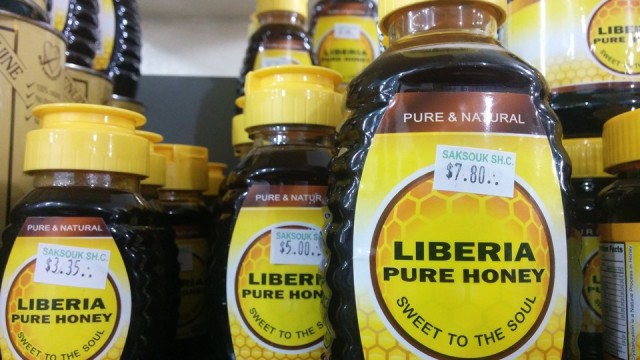
Liberia Pure Honey on the shelf at a local supermarket. Photo: Jefferson Krua
When asked which products he would like to see produced locally, Joy said he would like to have a local butter producer.
“The butter is coming from so many countries. You have to keep it frozen,†he said. “If it’s made here, you don’t need to use the cold store because every day, [customers will] come and buy it,†he said.
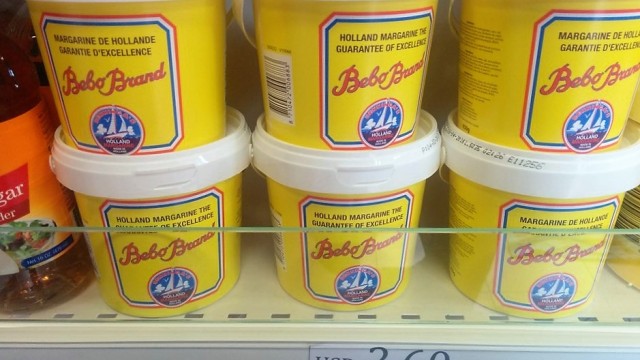
Margarine sold at a supermarket in Monrovia and originating in Holland. Photo: Jefferson Krua
He also named wheat flour and rice as items in high demand that he would like to see more produced locally. “Wheat flour stays long but sometimes, it’s very hard to get. Sometimes we cannot find it,†he added.
In interviews with Joy and Liberian entrepreneurs, there appears to be a demand for Liberian products on the market. Supermarkets too are willing to accept Liberian products, as it is good for business. The problem is both a scarcity of goods made in Liberia and the limited capacity of existing producers to improve packaging and shelf life of products to sell in supermarkets.
Featured photo by Jefferson Krua




I like your undertaken and will in due course, response to your request for assistance for assistance .